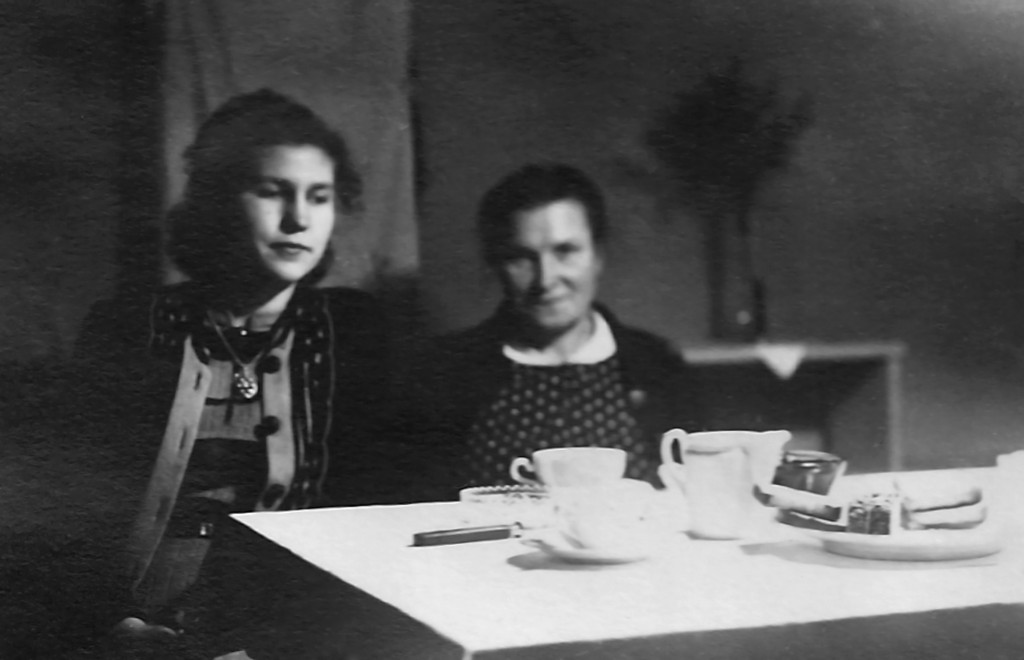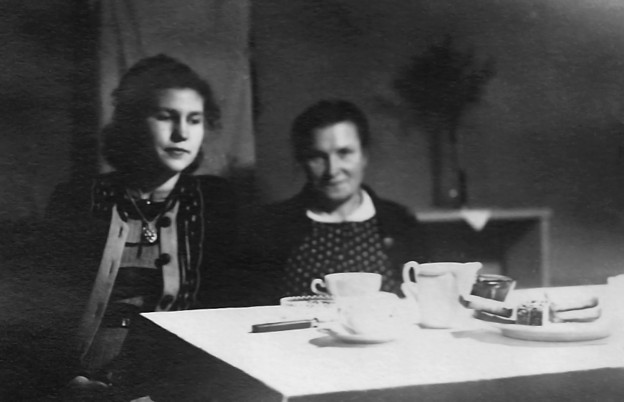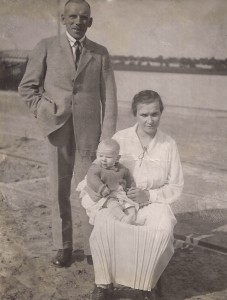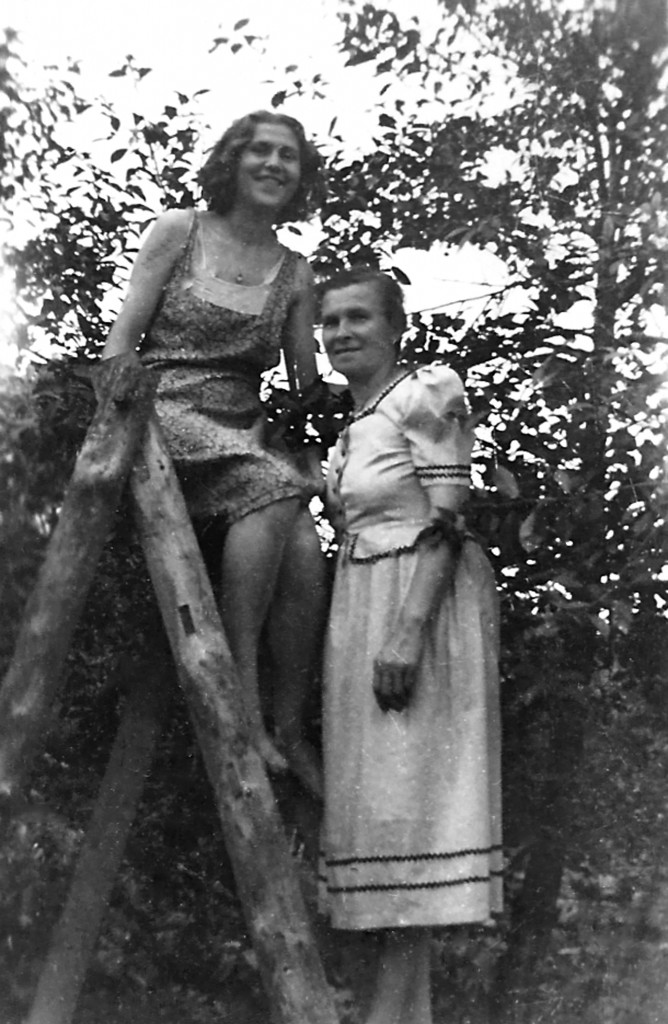 I think about Tante (Aunt) Lusche a lot. For me, aside from Helga, she is probably the book’s most enduring figure. She surfaces and resurfaces like a quiet refrain. I never knew her, but decades after her death, she’s in my mind. (Sorry, but if you don’t want to ruin the flow of the story, this is a true SPOILER ALERT :).)
I think about Tante (Aunt) Lusche a lot. For me, aside from Helga, she is probably the book’s most enduring figure. She surfaces and resurfaces like a quiet refrain. I never knew her, but decades after her death, she’s in my mind. (Sorry, but if you don’t want to ruin the flow of the story, this is a true SPOILER ALERT :).)
Helga has no story before Tante Lusche. In fact, Lusche is assisting the family before Helga is born. Later, marrying the same year as her older sister “Mieke”, and due to the hard times in Germany after the War, Lusche (officially Berta) and Uncle Fritz also take a spare room at their parents’ apartment. There were three families together.
At first, Lusche appears as a common, happy backdrop to Helga’s life, doing what any lovely aunt might have done in those days–creating holiday celebrations, caring for children not her own (she could have only one), supporting branch events, taking Helga on outings because her own mother was too ill. Helga seems to take this as a matter of course.
But during the complex stresses of the War, Lusche’s character is further revealed. Those were not ordinary occasions. To know when to invite someone home so forcefully that a life is saved, to reach above and around beyond her own despair to soldiers and doctors as her son lay dying. To bring a prisoner of war home for dinner. To watch over a young cousin and her daughter in a horrific post-war Russian camp (in a chapter of German history of which Americans are largely ignorant).
To survive after yearning to die, and to keep loving and keep serving and keep believing.
To draw a niece across the ocean with unceasing messages of love, and occasionally to send her a little money in the cocoa. To prepare a home for her arrival.
To rescue.
Though she has no living descendants, through Helga’s story, Tanta Lusche’s quiet love flashes bright again for those that may now “meet” her, illuminating our paths as well.


